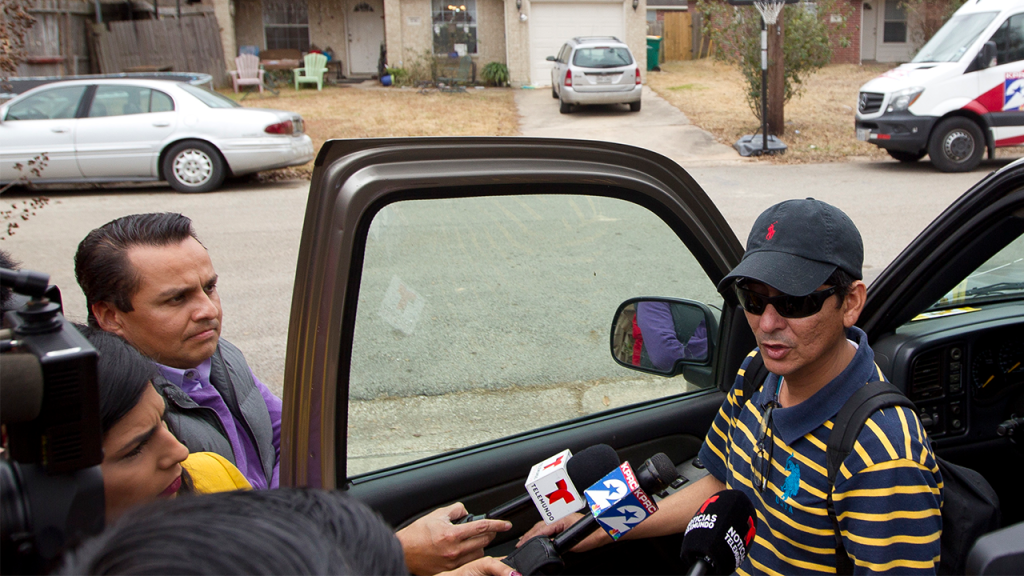A Texas federal judge has awarded nearly $2 million in damages to the family of Ulises Valladares, a man who was tragically killed by an FBI agent during a failed rescue operation in January 2018. The lawsuit alleged negligence on the part of the agent, who shot Valladares while he was bound and blindfolded, mistaking him for a kidnapper. U.S. District Judge Kenneth Hoyt determined that the FBI agent acted with gross negligence and was solely responsible for the death.
| Article Subheadings |
|---|
| 1) Details of the Incident |
| 2) Judge’s Ruling on Negligence |
| 3) Lawsuit Overview |
| 4) Reaction from Law Enforcement Officials |
| 5) Implications of the Case |
Details of the Incident
On January 26, 2018, an FBI agent shot Ulises Valladares during a chaotic rescue attempt at a home in Texas. Valladares, aged 47, was reported to have been kidnapped and was blindfolded and bound during the incident. As agents attempted to enter the residence where he was held, the lead agent, Gavin Lappe, fired his weapon at a shadowy figure without knowing it was Valladares. According to Lappe, he fired the shot in response to an alleged immediate threat when he believed a kidnapper had reached for a firearm after the agent broke a window to gain entry.
Judge’s Ruling on Negligence
Federal Judge Kenneth Hoyt evaluated the circumstances surrounding the shooting and concluded that Lappe exhibited negligence “even grossly negligent” behavior. The court found that Lappe failed to ascertain who he was targeting before firing, thus violating basic measures of safety required in high-stakes situations. Judge Hoyt emphasized that Lappe shot at what he perceived as a silhouette without confirming its identity and acted despite the absence of a direct threat to himself or fellow agents involved in the rescue operation.
Lawsuit Overview
The Valladares family filed a civil lawsuit asserting that the agent acted recklessly, leading to their loved one’s death. Despite Lappe being shielded from personal liability through a doctrine known as qualified immunity, which protects law enforcement officials from being sued for actions carried out during official law enforcement duties, the lawsuit could proceed against the federal government. Judge Hoyt’s ruling indicated that government accountability for the agent’s actions was essential given the seriousness of the incident.
Reaction from Law Enforcement Officials
Responses from law enforcement officials have surfaced since the ruling. Former Houston Police Chief Art Acevedo challenged Lappe’s justification for the shooting, indicating that the evidence collected during the investigation did not align with the agent’s statements. This critique underscores the extensive scrutiny placed on law enforcement practices in light of high-profile cases involving the use of deadly force. The severe nature of Valladares’ situation, being bound and blindfolded, has drawn scrutiny towards the FBI’s operational protocols during emergency rescue missions.
Implications of the Case
The judge’s decision reflects broader implications on law enforcement accountability and the limits of qualified immunity. Many legal experts argue that cases like this could set precedents for holding federal agencies liable for excessive force or negligent behavior by their agents. The case emphasizes the critical need for clear operational guidelines and thorough training for law enforcement personnel, particularly when the lives of innocent individuals are on the line. As scrutiny increases on police actions, it raises important questions about the balance between swiftly executing law enforcement duties and ensuring the safety of all parties involved.
| No. | Key Points |
|---|---|
| 1 | Federal judge awards nearly $2 million in damages to Valladares’ family. |
| 2 | FBI agent Gavin Lappe shot Valladares during a chaotic rescue attempt. |
| 3 | Judge Kenneth Hoyt ruled Lappe acted with gross negligence. |
| 4 | The lawsuit could proceed against the federal government, despite Lappe’s qualified immunity. |
| 5 | The case highlights issues of law enforcement accountability and operational standards. |
Summary
The ruling in this case represents a poignant reminder of the complexities surrounding law enforcement actions and the judicial system’s role in addressing alleged excesses. As public scrutiny increases toward police practices, this judgment against an FBI agent for gross negligence may pave the way for heightened accountability standards for law enforcement agencies. The tragic loss of Ulises Valladares underscores the pressing need for thorough procedural review and safer operational methods during response situations.
Frequently Asked Questions
Question: What does qualified immunity mean in this context?
Qualified immunity protects government officials, including law enforcement officers, from being held personally liable for actions taken while performing their official duties, unless they violated clearly established statutory or constitutional rights.
Question: What are the implications of this ruling for law enforcement agencies?
This ruling could influence how law enforcement agencies approach training and operational protocols, particularly regarding the use of force during rescue missions. It may also provoke discussions about holding agencies accountable for the wrongful actions of their officers.
Question: How does this case relate to broader discussions about police accountability?
The case emphasizes the ongoing national conversation about police accountability, the need for transparency in law enforcement practices, and the importance of holding officers responsible for their actions, especially in situations that lead to loss of life.


